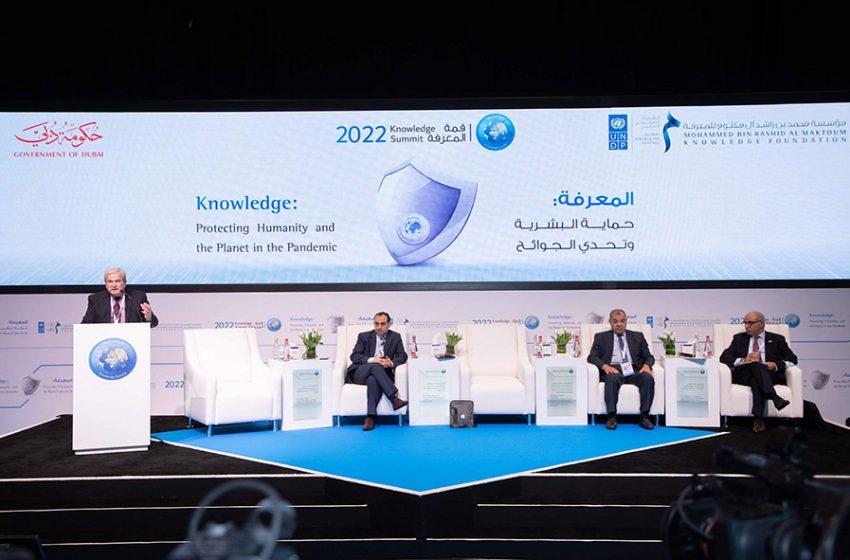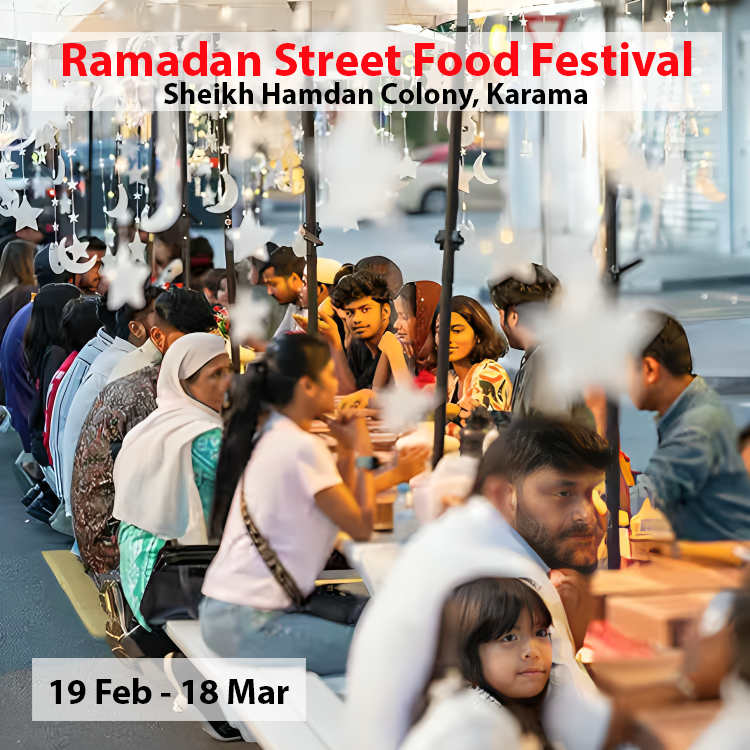Knowledge Summit sessions review the methodology of the Global Knowledge Index 2021

Dubai, UAE, March 17, 2022 – The seventh edition of the Knowledge Summit has provided Knowledge Space sessions the platform to carry out a comprehensive review of the methodology of the Global Knowledge Index 2021. Aimed towards harnessing knowledge in societies to achieve the UN Sustainable Development Goals, the Index was published by the United Nations Development Program (UNDP), in collaboration with the Mohammed bin Rashid Al Maktoum Knowledge Foundation (MBRF).
The events of the second day included two Global Knowledge Index 2021 review sessions entitled ‘Global Knowledge Index: Sectoral Perspectives.’ The first session highlighted the insights of Dr. Najoua Fezzaa Ghriss, Associate Professor, Tunis University and Professor, Higher Institute of Education and Continuous Training; Dr. Youssef Sadik, Professor, Mohammed V University and Research Associate, Research Centre on Immigration, Ethnicity and Citizenship, University of Quebec; and Dr. Ali Ibrahim, Associate Professor, UAE University. The session was Moderated by Dr. Hany Torky, Chief Technical Adviser and Project Manager, Knowledge Project, UNDP.
The second session saw the participation of Dr. Motaz Khorshid, Former Minister of Higher Education and Minister of State for Scientific Research, Egypt; Professor Yousry El-Gamal, Former Minister of Education, Egypt and Professor of Engineering and Computer Science and Senior Advisor, Arab Academy for Science and Technology; and Dr. Khalid Al-Wazani, Associate Professor of Public Policies, Mohammed Bin Rashid School of Government. The session was moderated by Dr. Hany Torky, Chief Technical Adviser and Project Manager, Knowledge Project, UNDP.
The speakers emphasized the major change that the Global Knowledge Index had brought about across knowledge sectors in the world since it was modified to include over 154 countries, instead of conducting evaluations within the Arab region.
Dr. Najoua Fezzaa Ghriss showcased the methodology for preparing the Pre-University Education Index as part of the sectoral indicators, noting that the indicator was adopted in line with the 2030 Sustainable Development Goals by the United Nations, which aims to include all citizens of the world, leaving no one behind. Fezzaa further explained how the Pre-University Education Index data served as an important reference for countries to deepen their understanding of their strengths and vulnerabilities, which would result in long term benefits such as widespread reform in the education sector.
Highlighting the Technical Education Index, Dr. Youssef Sadik shared that all the data used was collected in collaboration with institutions such as the World Bank, UNESCO, and UNEVOC. Sadik also noted the importance of directing more funds towards technical education in the Arab region by stating that it was integral to the labor market and contributed significantly to economic diversity in the country.
Dr. Ali Ibrahim reviewed the University Education Index, which had been developed in response to a critique of an indicator in the previous edition of the Global Knowledge Index. He said, “The education sector data within the global knowledge index demonstrates that there is a significant knowledge gap in the education sector among Arab countries which requires urgent addressing.”
In the second session, Dr. Motaz Khorshid showcased the methodology and themes of the R&D and innovation index. He said, “This indicator is of great importance owing to its direct link with the knowledge economy. Innovation is the essence of scientific research and can create a significant impact in society. This index is also a measure of a country’s intangible assets, such as scientific research, patents, environmental innovation, digital skills, economic innovation, and social innovation.”
Referring to the results in the R&D and Innovation Index, where Switzerland leads globally, while the UAE ranks first within the Arab region and 28th worldwide, Khorshid further underlined that the UAE played a crucial role in advancing the sector of scientific research, development, and innovation.
Professor Yousry El-Gamal highlighted the themes of the ICT Index, reviewing all seven sub-themes with 23 variables. He said, “ICT plays a key role in development. It can bring about a crucial shift in production and services. Production backed by knowledge has always been linked to technological advancements as they contribute to economic progress and entrepreneurship. They also work towards ensuring the efficiency of the overall functioning of value-added chains.”
El-Gamal also stressed the importance for Arab countries to work towards developments in their digital infrastructure. He stated that this had the potential to play a central role in supporting all sectors of society. He then proceeded to review the results of the Arab States, where the UAE ranked first, followed by the State of Kuwait and the Kingdom of Bahrain.
Regarding the economy index, Dr. Khalid Al-Wazani noted that the indicator consisted of six main themes and 23 sub-variables. He further observed that the structure was in line with the concept of the transfer and Localization of knowledge, relying on quantitative indicators that provide accurate independent information, and on the human role in the transfer and localizing of knowledge-building. Al-Wazani also highlighted the results of the United Arab States in the economy index, with the UAE ranking second in the world and first within the Arab region, followed by Qatar, which ranked second among the Arab region and 20th in the world.
The Knowledge Summit, organized by the Mohammed Bin Rashid Al Maktoum Knowledge Foundation (MBRF) in collaboration with the United Nations Development Program (UNDP) on March 14 and 15 at Expo 2020 Dubai, has witnessed the participation of experts, leaders, and government officials. These esteemed officials have come together to highlight the opportunities and challenges of building knowledge societies amidst the challenges and changes presented by the Covid-19 pandemic.
The Summit aims to provide broad and in-depth perspectives on several issues of global interest. It examines current and future challenges and reviews the opportunities and options that knowledge has the potential to provide. This will aid the formulation of effective solutions and tools that would further enable countries to achieve development plans that are in line with the United Nations Sustainable Development Goals.








